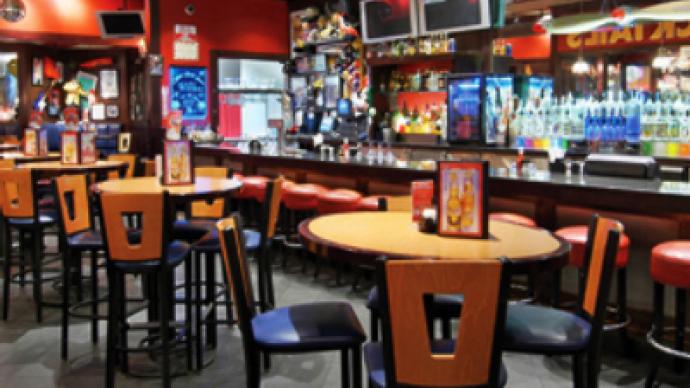Dining out in the downturn

2009 has been a tough year for Russian restaurateurs. Business RT spoke with Rosinter restaurants, Russia’s largest restaurant chain, about the year and outlook.
Rosinter’s restaurants include the Il Patio, Planet sushi, T.G.I. Fridays, and Costa Coffee chains across Russia. Business RT spoke with Rosinter President, Sergei Beshev about how the company has handled the economic downturn of 2009 and how 2010 is likely to shape up.
RT: How has the restaurant sector as a whole been hit by the economic downturn?
“The restaurant market has certainly felt the impact of the economic crisis, especially in the first and second quarters of 2009. The segment of elite restaurants gave under and their turnover has decreased by 40%; the segment of medium class restaurants with democratic prices has shrunk by 15%-20% compared to the same period in 2008. The QSR segment was the most stable because prices in fast food restaurants are low; there is no huge growth in this segment but the losses are also small. In all probability, this segment of the restaurant market was supported by people who have come from more expensive market segments or who have partially replaced visits to restaurants by snacks in fast food chains.”
RT: How has Rosinter been affected?
“Rosinter is the biggest restaurant company in the casual dining segment. It has the widest geographical spread among chain players (38 cities in Russia, the CIS and Europe). That’s why the company’s indicators are illustrative for this segment. The Company’s results in the first six months of 2009 show a 4% increase in revenues in the ruble equivalent. The net cash flow from operations has increased by 58.2% since 2008. These indicators are both a consequence of rapid development in 2008 and the attractiveness of our trade marks which are capable of retaining the clientele in these hard times. Late in summer 2009 we saw that the fluctuation of our transactions was stabilizing. A slight but positive trend towards growth in transactions and the turnover has been noticed since September. The company will open about 40-50 new restaurants, including at such a vital facility as the new terminal “D” at the Sheremetyevo airport.”
RT: How is the fourth quarter 2009 shaping up?
“We hope that this high season for most business sectors will see an increase both in the number of transactions and sales on the whole. However, it should be noted that the flu epidemic restricted the buying activity in some regions for a certain period of time.”
RT: What factors will play the key role in retail market in 2010?
"First, it’s the population’s income levels which determine the buying activity. Then, it’s the fluctuation of foreign exchange rates, commercial inflation, the level of lease rates, salaries and the margin – everything on which the efficiency of business retails depends. "
RT: How has demand changed during the crisis?
“The main drop in transactions fell on lunchtime. There were big personnel cuts in our offices early this year, and salaries also went down. We created an “easy on the pocket” menu that was available to our guests a bit longer than the usual lunch hours. We tried to make the most favorable offer in terms of price and quality."













